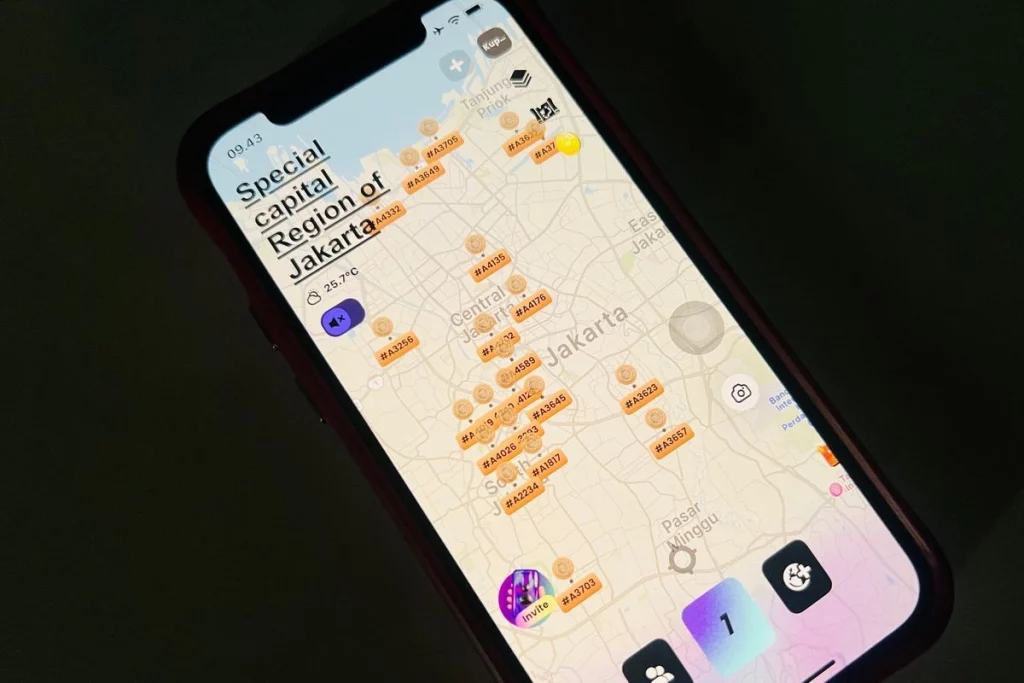UNAIR NEWS – The treasure-hunting game Koin Jagat has recently gone viral on social media, captivating the public with its interactive features. Integrated into the Jagat app, the game offers users the opportunity to explore real-world locations to collect virtual coins, which can later be exchanged for cash prizes.
Dr. Andria Saptyasari, S.Sos., M.A., a Communication Studies lecturer at Universitas Airlangga (UNAIR), attributes the game’s popularity to the pervasive influence of digital technology, particularly among those facing financial difficulties. “The appeal lies in its ability to provide both entertainment and financial incentives,” she remarked.
Overview of Koin Jagat
Koin Jagat is a gaming feature within the Jagat app, launched in 2022, which has amassed over 5 million downloads. Players are tasked with gathering virtual coins scattered across cities such as Jakarta, Bandung, and Surabaya. These coins come in three types with varying cash values: bronze (starting at IDR 300,000), silver (mid-level rewards), and gold (up to IDR 100 million).

Dr. Saptyasari pointed out that the promise of tangible rewards is a key motivator for users. “The allure of rewards often drives engagement, as people are naturally more inclined toward rewards than penalties,” she explained. She also likened the game’s novelty and appeal to the once-popular Pokémon phenomenon, which drew users with its innovative gameplay.
Emerging popular culture
Dr. Saptyasari noted that Koin Jagat reflects a new wave of popular culture that may fade as newer, more engaging applications enter the market. However, she expressed concern over its potential impact on younger generations, urging developers to create games that are not only innovative but also foster social development.
“The main concern is that young people may develop a dependency on such technologies as a means to escape frustration, stress, or boredom,” she explained.
Potential consequences
The lecturer highlighted the broader implications of the game, including its potential to reshape societal attitudes toward wealth and effort. She cautioned that the focus on instant rewards may encourage a culture of quick gratification. “This trend fosters a mindset of seeking immediate gains, overshadowing the importance of understanding the process and purpose behind earning a livelihood,” she elaborated.
“An overreliance on instant rewards could make younger generations more vulnerable to stress, frustration, and depression when faced with real-life challenges,” she added.
Furthermore, she raised concerns about the potential for data exploitation, noting that many applications require access to users’ personal information, which is often collected indirectly.
“This creates a scenario where users unknowingly consent to agreements that bind them to the app’s ecosystem, demanding continuous sacrifices—money, time, energy—which can lead to exhaustion and strain relationships with family,” she explained, highlighting the potential costs to personal well-being and relationships.
In her concluding remarks to UNAIR NEWS, Dr. Saptyasari emphasized the importance of addressing these ethical concerns, particularly regarding user privacy and the long-term effects on mental health, as they are critical issues in the rapidly evolving digital era.
Author: Anggun Latifatunisa
Editor: Yulia Rohmawati









